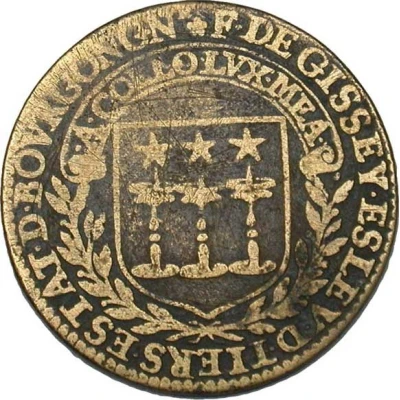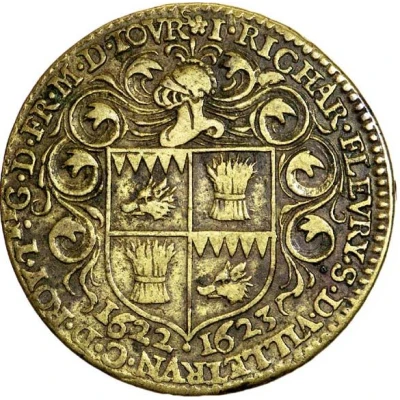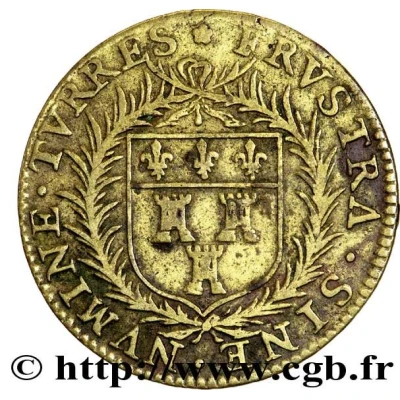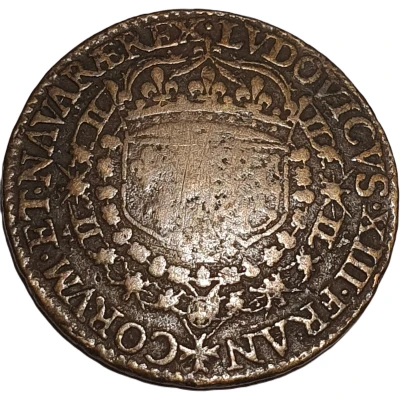
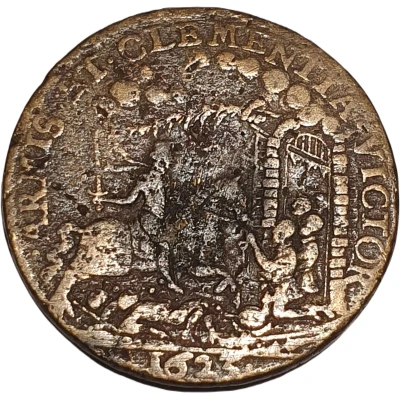

Jeton - PROTESTANTISME Languedoc - Prise de Montpellier
1623 year| Brass | 7.01 g | 27 mm |
| Location | France |
|---|---|
| King | Louis XIII (1610-1643) |
| Type | Commemorative medals › Company, institution and association medals |
| Year | 1623 |
| Composition | Brass |
| Weight | 7.01 g |
| Diameter | 27 mm |
| Shape | Round |
| Updated | 2024-11-12 |
| Numista | N#368764 |
|---|---|
| Rarity index | 97% |
Reverse
Louis XIII on horseback, right, receiving the keys to the city from the Montpellier municipality, kneeling under the entrance gate.
Script: Latin
Lettering: ARMIS ET CLEMENTIA VICTOR - 1623.
Edge
Plain
Comment
Source : https://www.cgb.fr/protestantisme-languedoc-prise-de-montpellier-tb,fjt_791788,a.html"PROTESTANTISME (14/05/1610-14/05/1643)
As early as the La Rochelle assembly of December 24, 1620, Huguenots protested against the re-establishment of Catholic worship in Béarn.
Protestants in the south of France rose up and asked England for help.
The Protestant initiative was supported by nobles such as the Duc de Rohan, the Duc de Soubise and the Duc de La Force.
The Duc de Mayenne was killed on September 22, 1621 while attempting to capture Montauban, defended by the Duc de Rohan.
The Peace of Montpellier on October 18, 1622 confirmed the Edict of Nantes, but La Rochelle and Montauban remained Huguenot strongholds.
War resumed in 1625, however, with the capture of the island of Oleron by the Duc de Soubise.
The people of Rochelais rose up. A provisional peace in 1626 did not prevent Richelieu from laying siege to La Rochelle in October 1627, while the town was being supplied by the English.
La Rochelle finally capitulated on October 28, 1628, after being abandoned by the English fleet.
The Protestants of the Midi took up the fight again with the siege of Privas and the capitulation of Alès.
The Edict of Alès of June 28, 1629 confirms religious freedom, but deprives Protestants of places of safety."
